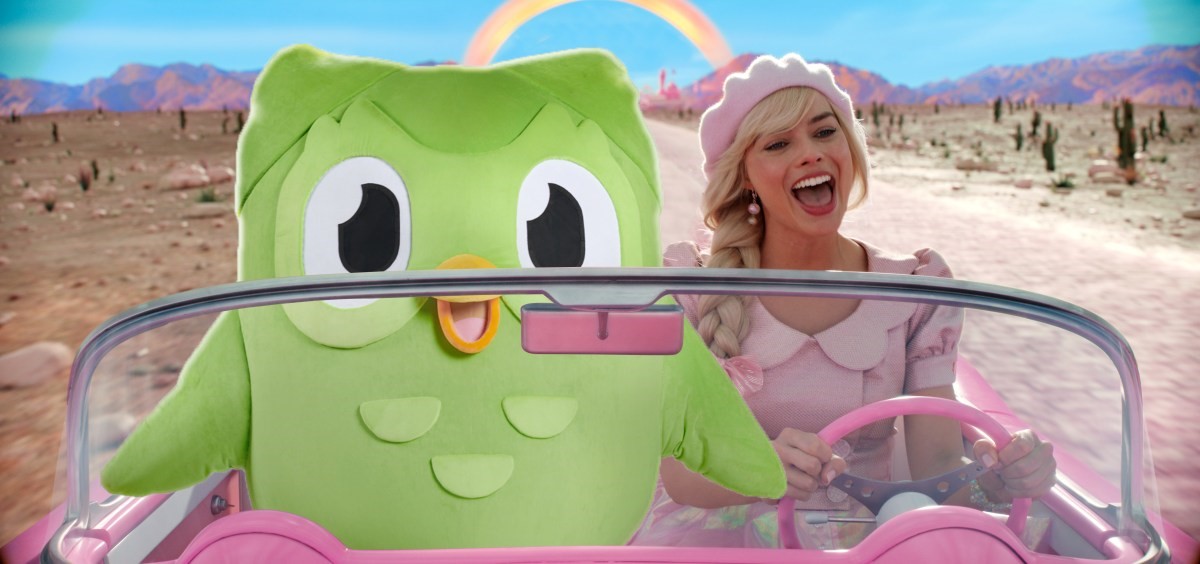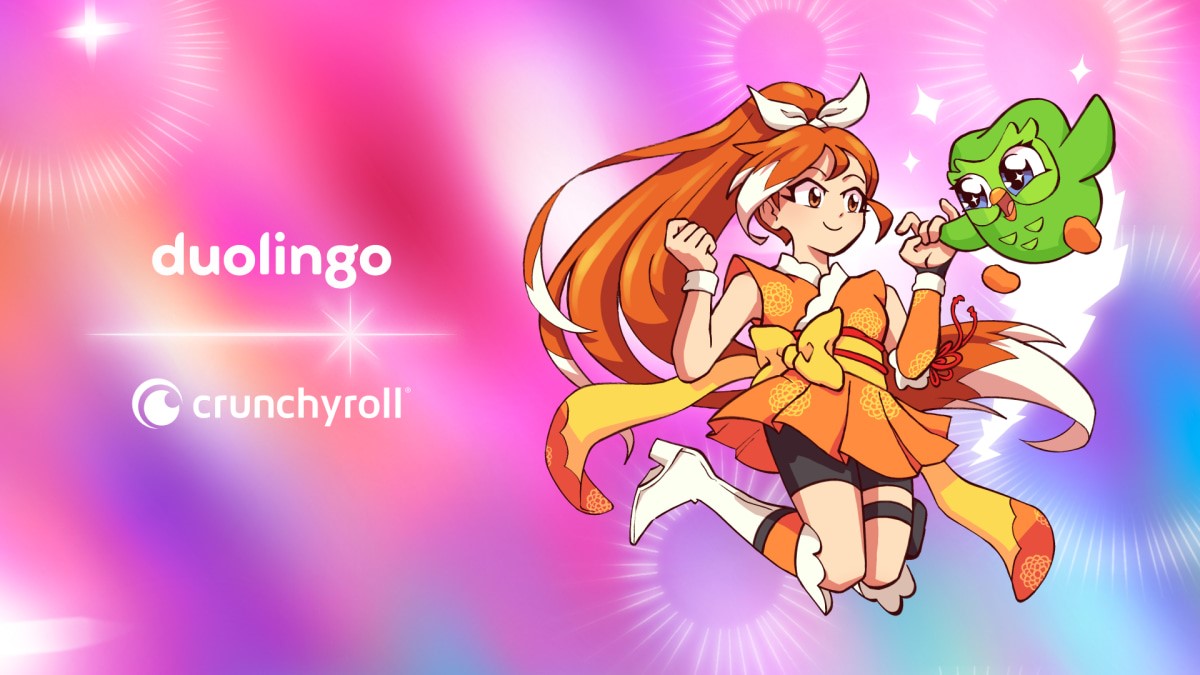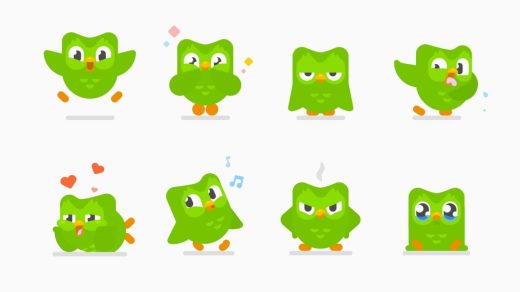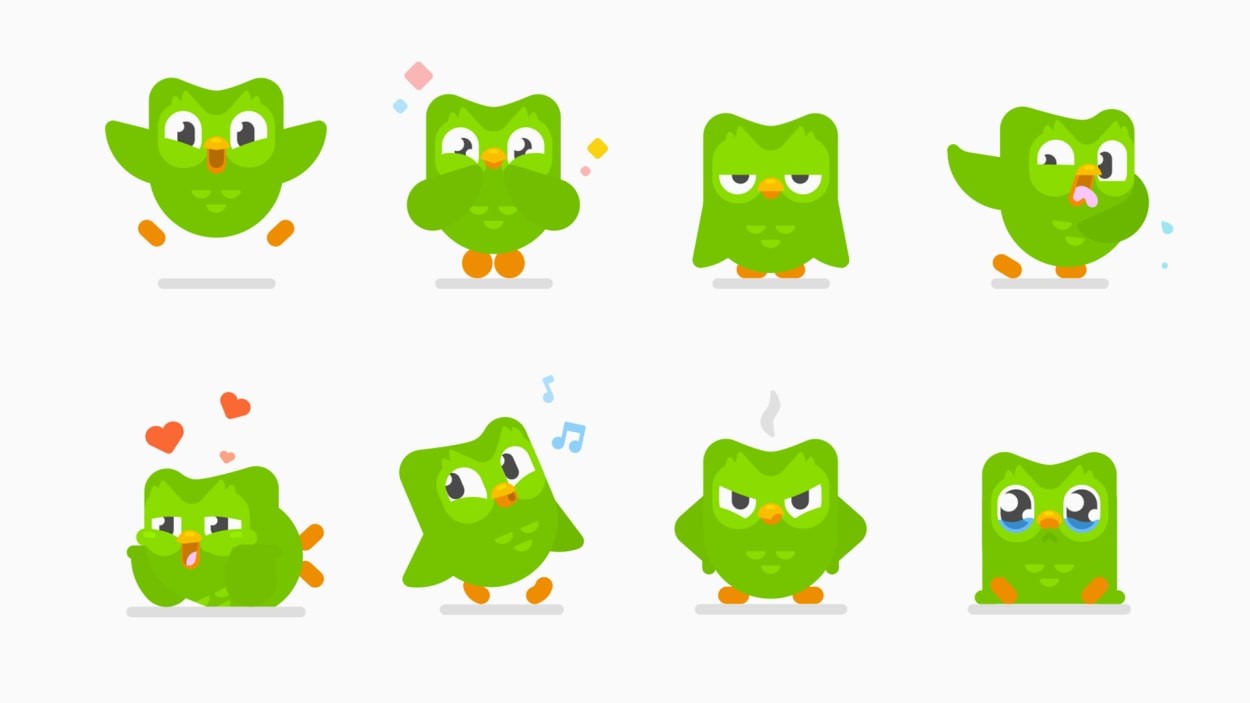Why Gen Z is obsessed with the Duolingo Owl
By Yasmin Gagne
In one of Duolingo’s recent posts on TikTok, Duo, the language-learning app’s green owl mascot, explains to a support group of Teletubbies that there’s a restraining order against him. Commenters expressed concern: “Duo . . . where did you find the Teletubbies?” one asked. Duo promptly responded that he keeps them in his basement.
This unhinged behavior is typical of the character on social media. Duo’s popularity has exploded on the internet: The owl has nearly 8 million followers on TikTok, in large part due to his humorously threatening videos urging users to keep learning on the app.
Now, users are hosting Duo-themed streak parties and dressing up as the character for Halloween. Recently, a member of the Stanford marching band even took to the field dressed as the owl.
“I’ve been on the app since 2019, but it was only during the pandemic, when I started seeing Duo on social media being all unhinged, that I really engaged,” says Genesis Garcia, a Human Rights Watch volunteer outreach coordinator. Now, she has nearly completed a one-year streak of daily Spanish lessons and, when she hits the milestone, plans to host a Duo-themed party where attendees will have to wear green like the owl. “My girlfriend and I want to make a Duo cake,” she adds.
Content about Duo started organically—Duolingo users started making jokes about the obnoxious owl on social media after receiving its passive-aggressive reminders to keep up with language lessons—but the company has skillfully used Duo to grow its brand recognition and bring younger audiences onto the platform.
“A significant amount of our user growth comes from people seeing us on TikTok,” says Katherine Chan, Duolingo’s marketing director who leads social media at the company after a career at Red Bull, Tesla, and Meta. Then 23-year-old social media manager Zaria Parvez’s videos of Duo started getting some attention in 2021, and Chan joined the company to grow its following further. She adds that users finding the app through TikTok tend to skew younger. “Someone remade one of our videos shot-for-shot in Minecraft,” she says. “I think that person was a 14-year-old kid, honestly.”
The company is also trying to develop content around other characters on the app, in particular, an apathetic purple girl named Lily who has also become popular with its user base. “We’re creating a sort of ’90s sitcom for her that will all live on social media,” Chan says. Ultimately, she sees Duo and Duolingo’s relationship as similar to Mickey Mouse and Disney. “Duo definitely has main-character energy.”
The Duolingo social team stays nimble and jumps on TikTok trends as they see them. “There’s some campaigns that we work on for months with a production company, but most frequently, actually, I would say we’re quick. We go from ideation to shipping a video in 30 minutes.” One elaborate spoof on April Fool’s last year was a re-creation of a personal injury legal ad asking users whether they had been harmed by a rabid green mascot. As time has passed, Duo has also taken on more characteristics. This year, the mascot has even fallen in love with singer Dua Lipa.
That strategy has paid off, with initial posts almost working like a flywheel. After Duolingo was mentioned briefly in the incredibly meme-able Barbie movie, the owl mascot was allowed to walk the red carpet, generating even more social content. The company also created a 30-second ad to play at some cinema screenings.

Duo is not just popular in the United States. True to the app’s international focus, the owl has a separate social media account in countries including Japan, India, Germany, and Brazil. Though Duo’s basic personality traits remain—being chaotic, impulsive, and passive-aggressive—the company has adapted some of its aspects to appeal to different cultures. “In Japan, we riff on animé, and he’s a little more cute. In Germany, we made a video of him trying to get into [legendary nightclub] Berghain.”

Later this month, Duolingo is releasing a Duo costume via its online merch store. “We’re making it easy for users to terrorize their friends who haven’t been keeping up with their lessons in real life,” Chan says.
(61)



